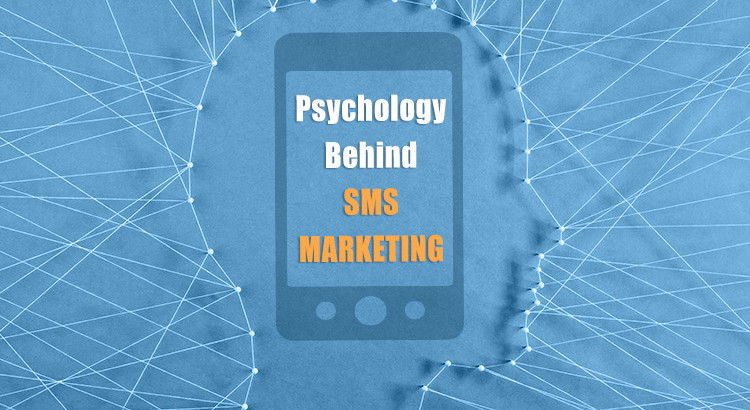Every business wants to be more persuasive, influential with its SMS marketing campaign in order to attain maximum conversion ratio. While businesses are ready to go any heights to make their SMS marketing campaigns a success, they often forget an important part of marketing campaigns, — the target audience’s psychology? This shouldn’t come as a surprise; the hacks for conversion and persuasion start with psychology.
You need to understand. As a SMS marketer, you are no more a spectator; you’re a persuader. Like a social media marketer knows why the link inside his Facebook post is getting clicks, or which type of tweets gets favourites or retweets, a SMS marketer must know why someone opens a text or, preferably, clicks the link in it or any other call to action. No doubt, understanding the psychology requires high level of observance, patience, and understandability.
To make the complicated task of understanding your target audience’s psychology easy, I have pointed a few psychological tricks that can make you get maximum out of your SMS marketing campaign.
Theory 1: Amplification Hypothesis
The theory states, “When you express with confidence a specific attitude, that attitude toughens.” As SMS marketers, we don’t want to harden the attitude of our end targets. What we want to do is the exact opposite—to soften the attitude. So we reverse the theory.
If you want to soften the attitude of your target audience, include uncertain texts into your SMS marketing campaigns. Softening attitudes are particularly relevant if your texts’ content is going to include some serious information. Perfect for the time when you want to let your customers know of an upcoming system outage or in the case of an ecommerce website, delay in the delivery due to an unavoidable circumstance.
Funny tagline at the end of the content works, irrespectively.
Theory 2: Conversion Theory
“The minority in a group can have a disproportionate effect on influencing those in the majority.”
When a campaign goes viral, people join it in hordes forming the majority while the campaign’s original supporters who helped the campaign go viral are now in minority. In spite of being in minority, they are group influencers who are more likely to be converted into a customer than the newly joined brigade is.
In short, if you are targeting the influencers—confident minority, in a way you’re automatically influencing the majority. The opposite is also true: any unimpressive text can turn this group off. Keep a tab, who are in that group and target them with care.
Theory 3: Reciprocity Norm
A common social norm we all are aware of. Reciprocity includes our responsibility to return favours done by others. If you keep sending texts to your privileged customers with the offers that they can’t refuse, you’re in a way sending them favours that, because of the social norm, they would feel like returning.
Returning means, they will first visit your store if their desired items meet your store’s offerings. If you’re a big retail mart that offers everything under it, then “Reciprocity Norm” will bring you great returns.
Theory 4: Scarcity Principle
This theory takes advantage of human nature. A person is more tend towards the things in scarcity than those in abundance do. Concisely, a thing that is in short supply increases customers’ desire towards buying it. The insecurity–the regret that you will miss out by not acting fast enough, makes them buy those stuffs even when they don’t need them at present.
In a nutshell, if you put terms like “last day of the sale” or “only Sunday” in your marketing texts, the texts are more likely to convert.
Theory 5: Sleeper Effect
Sleeper is probably the most bizarre effect of all of the above. Sleeper Effect actually makes the effect of once persuasive texts decrease over the time. This is particularly relevant for texts from credible source. It is because of our minds affinity to start disassociating the source from the material with time.
It means the messages that were once working great will lose their effect and those with low persuasion gain persuasion as our minds starts to disassociate the source from the material.
Your audience might like the text but because of the effect, they might forget to remember the sender of the message. To make sure this doesn’t happen with your business texts, make sure you don’t stick to a particular style of SMS composition, or you’ll get lost in the effect’s outcomes.
My recommendations would be to keep switching the text content style and the name that appears over them from time to time.


